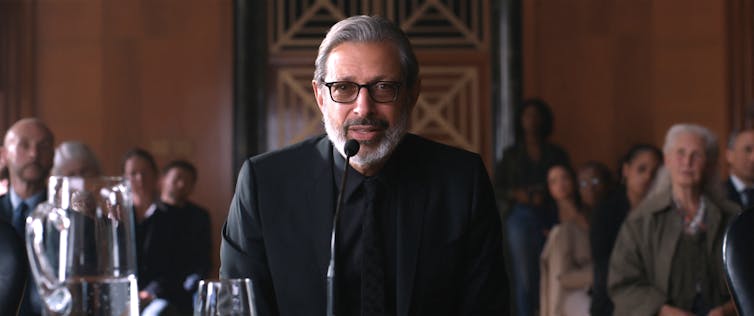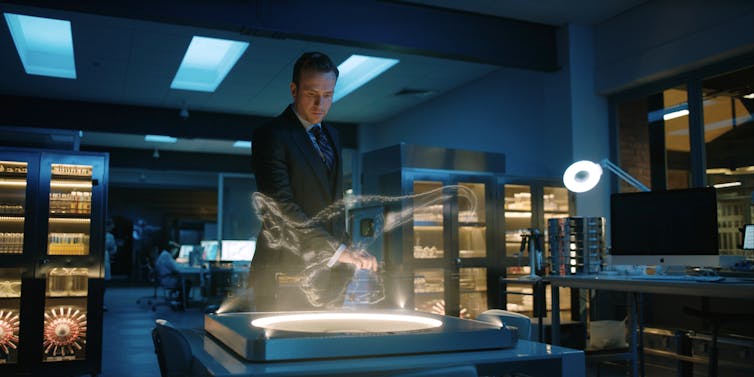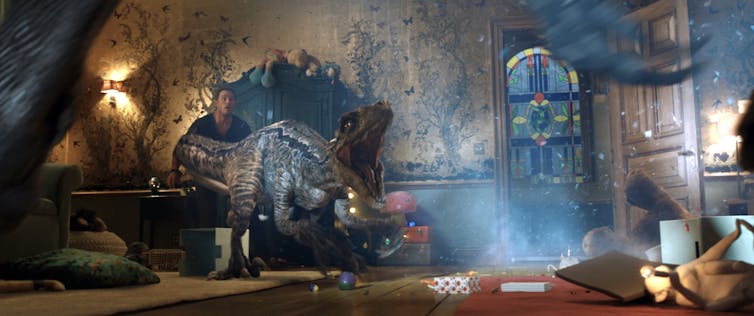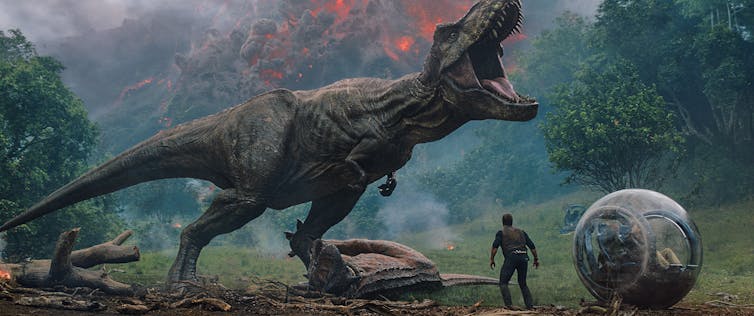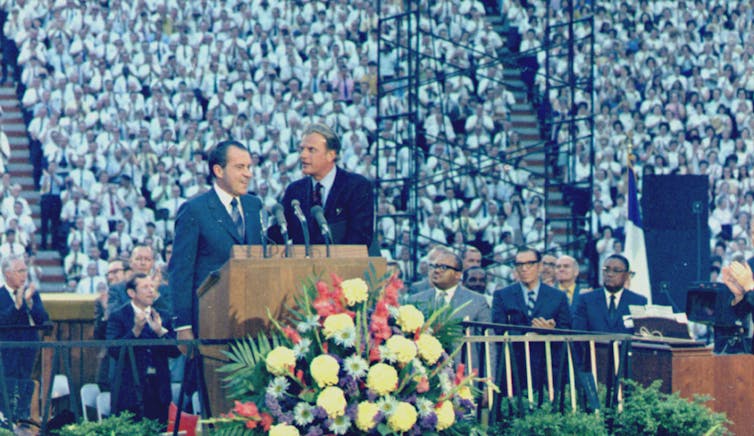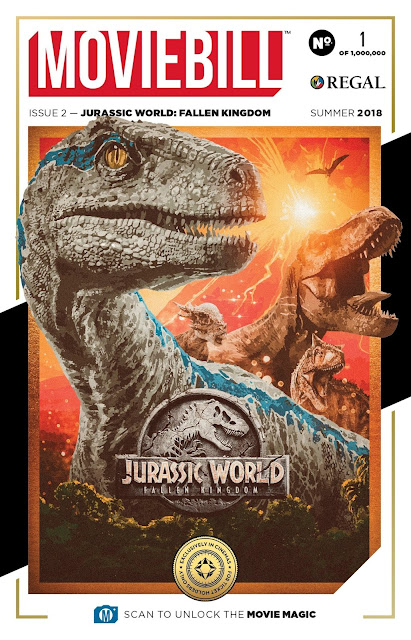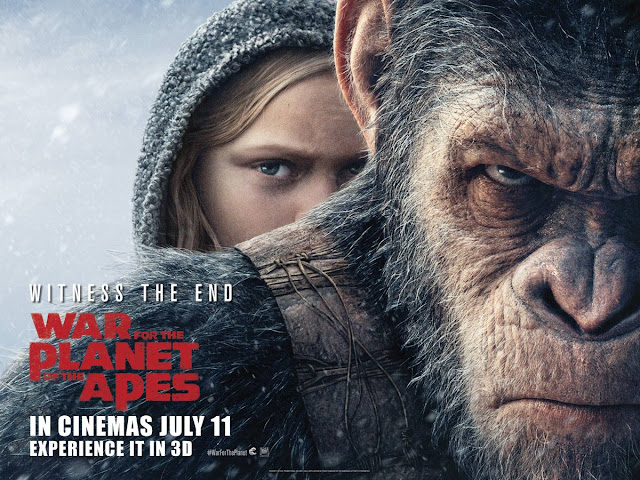 |
| War for the Planet of the Apes - Poster |
War for the Planet of the Apes, directed by Matthew Reeves, is the third film in the Planet of the Apes reboot, preceded by Rise of the Planet of the Apes and Dawn of the Planet of the Apes.
The film (which is available on FOX+) focuses on the Caesar (played by Andy Serkis) and the apes versus the humans (whose cast includes Amiah Miller, Woody Harrelson, and Gabriel chavarria) battling for control of planet Earth.
⏩ The entire plot occurs two years after Dawn of the Planet of the Apes.
The film was heavily praised for the strong performance by the cast, the direction, the writing, and the visual effects. It received positive feedback from both critics and fans everywhere, with high-scoring reviews across the board. It was a lot to live up to, especially considering the set-up done by the two films that preceded it.
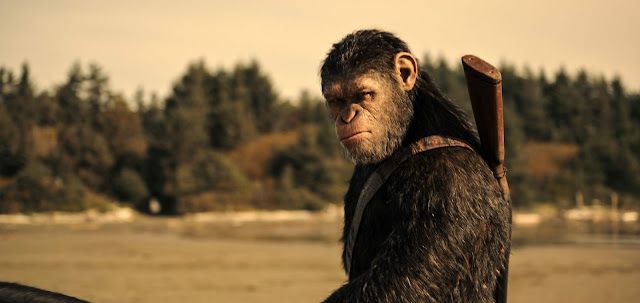 |
| War for the Planet of the Apes. (© 2017 Twentieth Century Fox Film Corporation. All rights reserved.) |
For fans just about to catch up on this third film, here's a review on the events that led up to the War for the Planet of the Apes:
➧ Rise of the Planet of the Apes
The beginning of the trilogy focuses on Will Rodman, a scientist who has been testing a cure for Alzheimer's on Chimpanzees. The cure inevitably grants the chimps vast intelligence and Will eventually ends up raising an intelligent chimp named Caesar.
As Caesar reached adolescence and learned of his origin, he began to question his identity. After an incident with their neighbor which lands Caesar in primate shelter with Rocket the chimp, Maurice the orangutan, and Dodge Langon who is their guard. In the shelter, Caesar escapes with the other chimps. Meanwhile, Will's father dies after declining an advanced treatment for his dementia.
After Rodman's assistant Franklin tests the advanced drug on a Bonobo named Koba, he becomes exposed and falls ill and dies. This marks the beginning of the Simian Flu pandemic. Meanwhile, Will tries to take back Caesar, who refuses to return and instead wants to lead his team of apes. Caesar eventually escapes the facility and manages to release the drug in order to grant other apes from zoos and labs intelligence. In the shuffle, Dodge dies.
A battle takes places as the apes fight their way through the Golden Gate Bridge in order to reach the forest. In one last attempt to have him return, Caesar and Will end up saying goodbye as they part ways. The apes head into the forest.
The second installment in the trilogy starts ten years after a pandemic called the Simian Flu has killed a majority of the human population. The flu was then discovered to be manufactured by the lab of Will Rodman. Meanwhile, the apes under Caesar has settled and created a colony in the forests of San Francisco.
A group of humans led by a man named Malcolm encounters the apes while searching for power supply for their settlement. The apes don't trust the humans but the two parties agree on a compromise, which allows the humans to work on the power supply. Koba, the Bonobo who distrusts humans, discovers the armory of the humans and confronts Caesar. Caesar defends the humans and this led to the revolt of Koba and a faction of the apes to battle the humans.
Koba wounds Caesar and frames the humans for his 'death', and uses this reason to wage an all-out war against the humans. Koba leads the apes into San Francisco and imprisons those who follow Caesar's teachings of sparing unarmed humans.
Malcolm finds Caesar and nurses him back to health and devises a plan to defeat Koba. The events lead up to Caesar confronting Koba and eventually overcoming him. However, before the defeat of Koba, the humans had already sent a radio message to the military, alerting them of the apes' attack.
The film culminates with the military approaching the settlement and the apes preparing for a new war.
SOURCE: FOX+
War for the Planet of the Apes - Trailer:

 There’s a new kid in town in Jurassic World: Fallen Kingdom. (Universal Studios and Amblin Entertainment, Inc. and Legendary Pictures Productions, LLC.)
There’s a new kid in town in Jurassic World: Fallen Kingdom. (Universal Studios and Amblin Entertainment, Inc. and Legendary Pictures Productions, LLC.)

